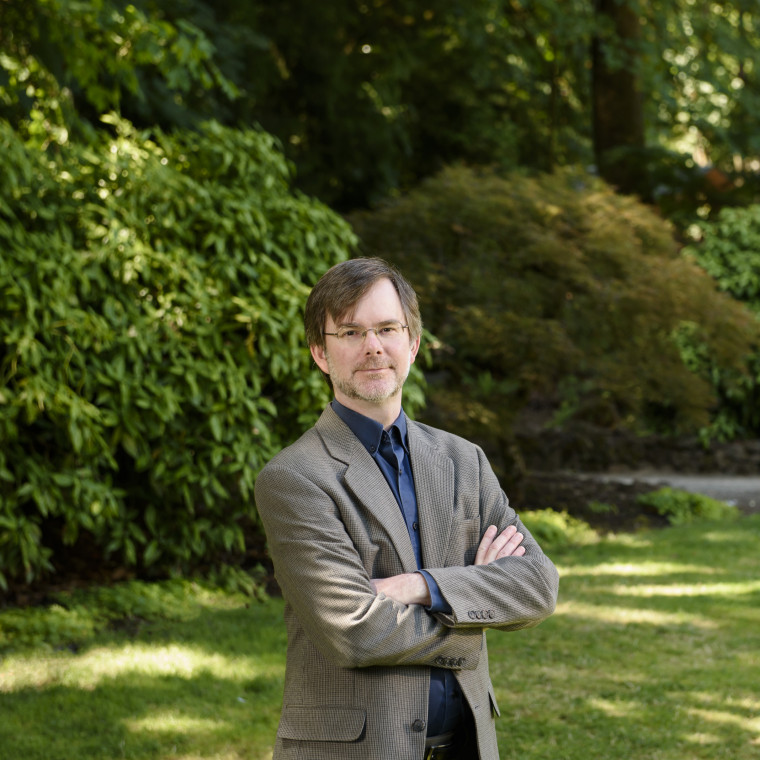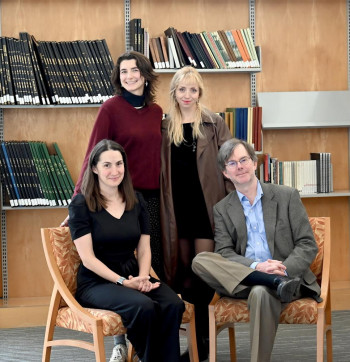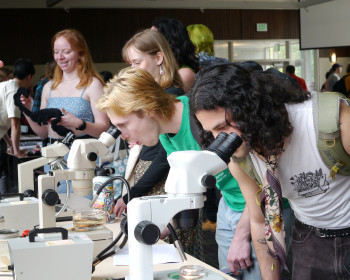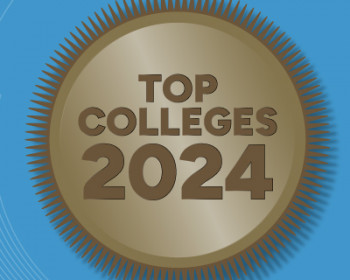Todd Lochner
I have collaborated with many students over the years, and I really love the enthusiasm, professionalism, and expertise they bring to my research.

Pronouns
Title
Department(s)
What three words would you use to describe Lewis & Clark?
Humanities Summer Research, July 2023
Responses were written together with coresearcher Professor of Political Science Ellen Seljan.
Tell us about your summer research.
Our research investigates whether small donors (individuals who give less than $200 to a political campaign over the course of an election cycle) exacerbate political
Credit: Devan Freemanpolarization. Current research demonstrates that individual donors—as opposed to PACS or political parties—are more likely to give money to extreme candidates on both ends of the political spectrum. However, researchers are now investigating whether there are significant differences between small individual donors and large individual donors as well. Ellen and I, along with two students—Madeleine MacWilliamson BA ’24 and Valerie Naborska BA ’24—are conducting an empirical analysis of campaign spending in Oregon state legislative elections to see if this is true.
How did you become interested in your research topic? What sort of real-world implications does your research have?
Todd has always been interested in campaign finance regulation and enforcement, and Ellen specializes in state and local politics. We’ve coauthored five publications together, all with student coauthors. We became interested in this particular topic given recent proposals to enhance the power of small donors by, for example, providing state matching funds for their donations. Most people assume that anything that shifts money in elections away from institutional donors such as PACS to smaller donors is an unalloyed good. Certainly there are many benefits to such proposals, but if it is true that small donors exacerbate political polarization then academics and policymakers should take such findings into consideration.
How are students involved?
Both Valerie and Madeleine are involved in every facet of the paper, from research design to data collection to compiling a literature review to analyzing the final results.
What would prospective students find most interesting about this research?
We think the issue of political polarization is relevant to everyone for obvious and unfortunate reasons. We can’t reach conclusions without gathering and analyzing our data, of course, but if current theoretical expectations prove true it would yield a very tricky problem. On the one hand we want to “democratize” money in politics, but on the other we want to avoid political extremism and its accompalying pathologies. It may turn out you can’t do both. But again, we have to wait until we see what the data says!
What do you enjoy most about collaborating with Lewis & Clark students?
Ellen and I have collaborated with many students over the years, and we really love the enthusiasm, professionalism, and expertise they bring to our research. We view student-faculty research collaboration as a great way to show students exactly what it is political scientists do, and we enjoy helping students hone their social science skills.
How does Lewis & Clark/this summer research experience prepare your students for a career and/or advanced studies after graduation?
I’d let Madeleine and Valerie speak for themselves, but both are considering a career in either law or data science. This research concerns both, so not only does it help students to get a sense of what types of research they most enjoy, but also provides them a skills-based toolkit that should serve them well whatever career path they ultimately choose.
More Admissions Stories
Admissions is located in Frank Manor House on the Undergraduate Campus.
MSC: 32
email admissions@lclark.edu
voice 503-768-7040
fax 503-768-7055
Vice President of Admissions and Financial Aid
Eric Staab
Admissions
Lewis & Clark
615 S. Palatine Hill Road MSC 32
Portland OR 97219

